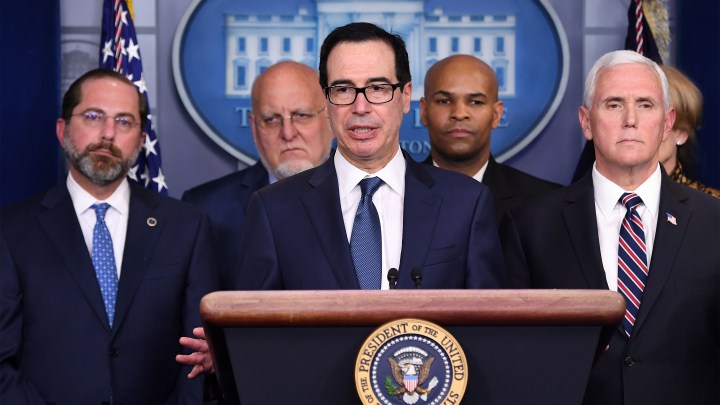
The Trump administration considers ways to help the travel industry
The Trump administration considers ways to help the travel industry

There are lots of options being batted back and forth in Washington for the next stage in responding to the spread of COVID-19, including the extension of support to some of the industries most affected by the pandemic.
Wednesday, Treasury Secretary Steven Mnuchin took great pains to emphasize that the administration’s plans to provide emergency assistance to airline, hotel and cruise industries do not amount to a “bailout”. Which makes sense, because bailout brings to mind what these market conditions already have everyone talking about — the 2008 financial crisis.
When the financial system was in turmoil in 2008, it was pretty easy to see which industries caused the problems and which were suffering.
“And this, of course, was concentrated last time to the financial industry, the housing industry, ultimately, the automakers were also involved,” said Maya MacGuineas, president of the Committee for a Responsible Federal Budget.
And so they got federal government bailouts, or loans, regulatory relief — whatever you want to call it.
“The assistance that was given to the banking and automobile industries during the 2008 financial crisis came under the heading of the Troubled Asset Relief Program,” said Erin Lockwood, assistant professor of political science at the University of California, Irvine.
How well that infamous TARP bailout worked is still being debated, and lawmakers are now trying to decide if industry bailouts will help this time around. Joshua Sewell, senior policy analyst at Taxpayers for Common Sense, thinks it’s too early to know.
“You need to stop the disease before you try to recover from the effects,” he said.
Right now, health officials are scrambling to contain the spread of COVID-19 and to prepare for an anticipated spike in patients and deaths.
“If this moves beyond a stock market crisis into affecting people’s take-home pay, their inability to have the kids go to school, then you should consider ways of easing the pain for people in what we know is the real economy,” Sewell said.
There’s a lot happening in the world. Through it all, Marketplace is here for you.
You rely on Marketplace to break down the world’s events and tell you how it affects you in a fact-based, approachable way. We rely on your financial support to keep making that possible.
Your donation today powers the independent journalism that you rely on. For just $5/month, you can help sustain Marketplace so we can keep reporting on the things that matter to you.


















